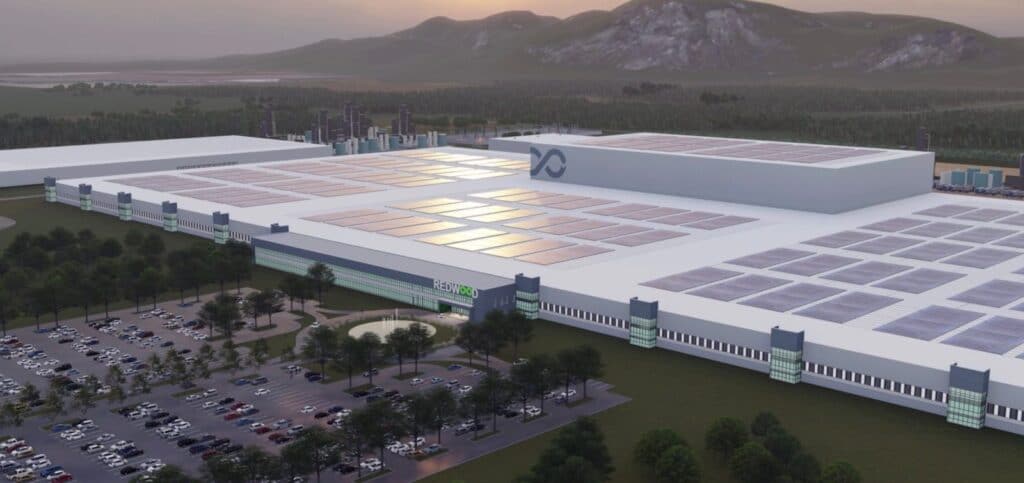Like some of its competition, Ford moved to find a partner to recycle its future electric batteries to offset new materials needed to produce new EV batteries. Teaming with Redwood Materials, the automaker hopes using recycled materials can drive down costs.

Finding ways to recycle these materials is already important because of the expected wave of EVs coming to not only the U.S. market, but the global community. The need to reuse materials will be critical to ensure future EV production.
“Ford is making electric vehicles more accessible and affordable through products like the all-electric F-150 Lightning, Mustang Mach-E and E-Transit, and much more to come,” said Jim Farley, Ford president and CEO, in a statement. “Our partnership with Redwood Materials will be critical to our plan to build electric vehicles at scale in America, at the lowest possible cost and with a zero-waste approach.”
The move is part of the automaker’s $30 billion investment in battery-electric vehicles and other forms of electrification between now and 2025.
Partnering on recycling
While securing the initial materials needed for battery production the first time is important, reusing those materials is critical to the long-term success of EVs. Using Redwood’s technology, more than 95% of materials like nickel, cobalt, lithium and copper can be recycled, the company claims.

Part of that involves using a closed-loop process producing anode copper foil and cathode active materials to produce batteries in the future. Using local and recycled battery materials, Ford should be able to cut the costs of the vehicles and reduce its need for raw materials.
“This approach will help ensure valuable materials in end-of-life products re-enter the supply chain and do not wind up in landfills, reducing our reliance on the existing commodities supply chain that will be quickly overwhelmed by industry demand,” said Lisa Drake, Ford’s North America chief operating officer.
Familiar leader in the team
Redwood Materials may sound seem familiar. In part, that’s because it works with other automakers, recently saying it will produce strategic battery materials, supplying anode copper foil and cathode active materials to U.S. partners.

The supplier also plans to transform the lithium-ion battery supply chain by offering large-scale sources of these domestic materials to reduce the cost and environmental footprint of electric vehicle production.
However, it’s leader, JB Straubel attracts attention as well — he’s a former top executive at Tesla Inc., the Chief Technology Officer once upon a time. However, he left the EV leader in 2019 to form his own company to build better batteries.
The result is Redwood Materials, which announced just a week ago it secured $700 million in investment capital to speed up its development plans, especially on the battery recycling front. That begins with a new plant in North America expected to produce 100 GWh of cathode materials by 2025. He expects that to rise to 500 GWh by 2030. For now the focus on the new hook up with the Detroit-area automaker.
“Increasing our nation’s production of batteries and their materials through domestic recycling can serve as a key enabler to improve the environmental footprint of U.S. manufacturing of lithium-ion batteries, decrease cost and, in turn, drive up domestic adoption of electric vehicles,” said Straubel in a statement.
“Redwood and Ford share an understanding that to truly make electric vehicles sustainable and affordable, we need to localize the existing complex and expensive supply chain network, create pathways for end-of-life vehicles, ramp lithium-ion recycling and increase battery production, all here in America.”
Longer-term, Ford and Redwood plan to work together on the best approach to collect and disassemble end-of-life batteries from Ford’s electric vehicles for recycling and remanufacturing to help reduce the cost associated with battery repairs and raw materials to manufacture all-new batteries.







